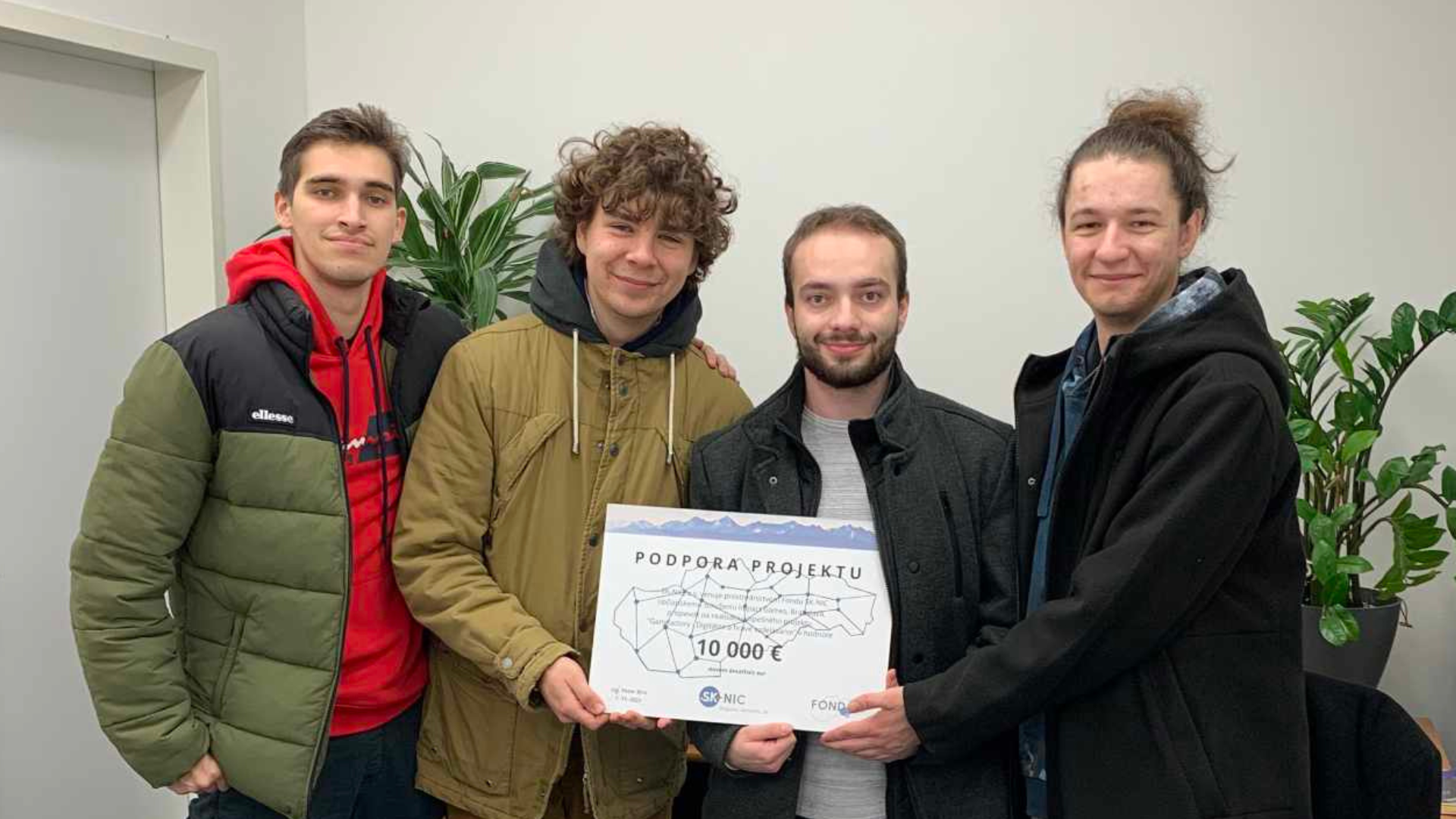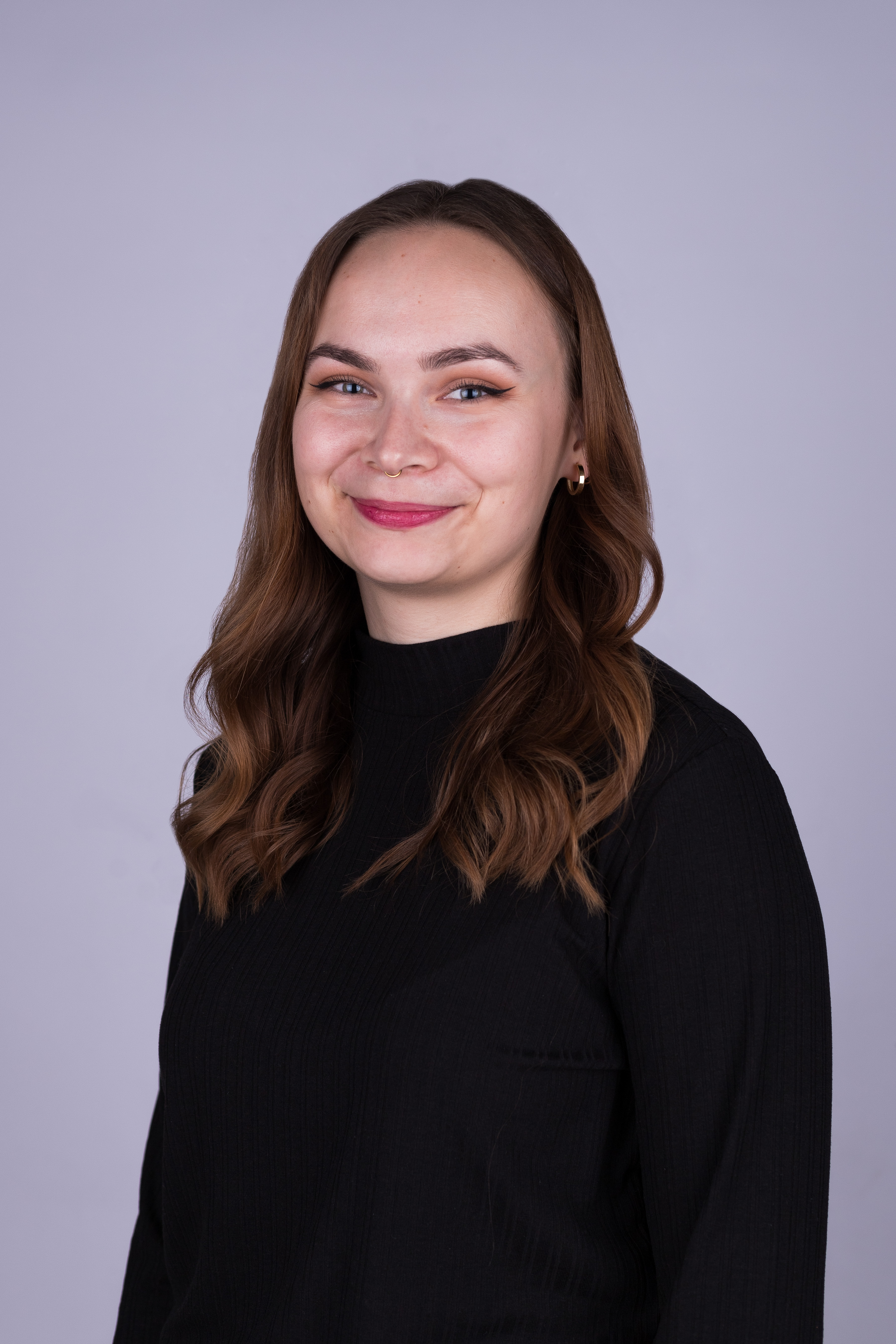
The future of gaming is being created at FMK: TEDI students showed how practice turns into a career
Experience, portfolio, new contacts, and job offers – TEDI students confirm that the FMK internship is not just an obligation, but a real springboard into the gaming industry.
At the Faculty of Mass Media Communication at UCM in Trnava, internships are not just theoretical. Students from the Digital Game Theory (TEDI) program regularly prove that combining study with real work in development studios makes sense.
Thanks to their internships, full-time students Marek Slováček, Petra Rendošová, and Šimon Rabatin opened doors to Slovak game studios, gained valuable experience, and some of them even ended up staying on to work there. Their stories show that if you decide to take a chance, the faculty can help you launch your career in the gaming world while you are still studying.
Practical experience gave him "peace of mind"
Marek Slováček is currently in his third year. He worked at Fono Labs for four months. His task was to create 3D assets for the environment: "I created elevators, pipes, walls, whatever was needed." He worked on the game Klaustroff, which is designed for virtual reality (VR) and is intended to help people overcome their fear of claustrophobia.
Slováček speaks highly of the internship and has only good memories of the experience: "The team was very friendly and small, so we got to know each other well. We didn't always work, and sometimes we had to try out some games and play."
He already had some experience, especially in the field of 3D or using various software. Nevertheless, the internship taught him a lot, especially in the area of game preparation: "When I arrived, I received a lot of background information, mood boards, stories, existing assets, temporary assets, beautiful corners, and concepts. They also explained the workflow to me, and I got to work very quickly."
In his own words, the internship gave him peace of mind. "I'm someone who is always stressed about the future - high school graduation, entrance exams, bachelor's degree, or whether I'll be able to pursue the career I've chosen. This internship showed me that I can do it. At the same time, I found out where my weaknesses are and where I need to work on myself," Slováček added.

You will gain experience, a portfolio, and contacts
Petra Rendošová is a first-year master's student. She went to Nine Rocks Games for her internship, where she worked as a junior 3D graphic designer. Although her internship has officially ended, she still works for the company on a contract basis. Her job was to work on an asset that had already been created and implemented.
She says she bombarded them with questions almost constantly: "I can't praise it enough. I got an answer to everything I asked. The office I went to was like my second home. I always looked forward to going to work. Coffee meant chatting in the kitchen, and my colleagues are wonderful people."
She learned a lot about technical matters. For example, she knows how to work more efficiently in Blender, she knows the entire workflow in Substance Painter, and she knows the basics of working with Unreal Engine in terms of importing and setting up graphic assets. "This was during my internship, and I'm still learning new things - or rather, ways to make my work easier without compromising quality," said Petra.
And what did her internship give her? "Experience, a portfolio, contacts, work, and even one published piece – an engraving on one of the weapons in the game Way of the Hunter. I also know that when an employer asks where you see yourself in a few years, the right answer is always 'with you,'" she added with a smile.
Don't be afraid to try and approach studios
Šimon Rabatin is a second-year master's student. He got his internship thanks to Science and Technology Week, when Jakub Žaludka from Impact Games mentioned during a lecture that they were looking for a talented game designer: "After the lecture, I approached him, wrote to him, and a week later I had an interview. In the end, we signed an internship contract and I got my first assignments."
He started working on their most famous game at the time, Aaron's Dilemma. Later came their first major project, Rocket Brains, an educational game for learning mathematics: "We started it as a school Game Jam project, which we then showed to Jakub from Impact. Together, we submitted a project application and managed to get a grant of €10,000. It was a huge experience that taught us how to turn an idea into a real game."

Thanks to the university, he later attended the Games Gathering conference, where he met a former TEDI student who directed him to Fono Labs. "During my internship there, we worked on the games Desert Drifters and Claustroff. Claustroff was a big challenge, as it was a VR game for people with claustrophobia. During development, I learned to think systematically about design, test ideas, and communicate better with the team," said Šimon.
Claustroff eventually won the SGDA Award in the Different Perspective category. "Today, I work at Fono Labs as a level designer, creating new levels for Desert Drifters. My internships at Impact Games and Fono Labs have brought me tremendous personal and professional growth and confirmed that I want to do exactly what I'm studying and create games that make sense," he explained.
In conclusion, he added that he wants to encourage all students to take advantage of the opportunities that the school offers them: "Don't be afraid to approach studios, apply for internships, and try new positions. Every beginning can be a path to your dream job, as it was for me. And above all, do something extra, beyond what is expected of you at school. Maybe that will bring you the best reward, as it did for me."
Photo source: Šimon Rabatin, FMK archive, Unsplash
